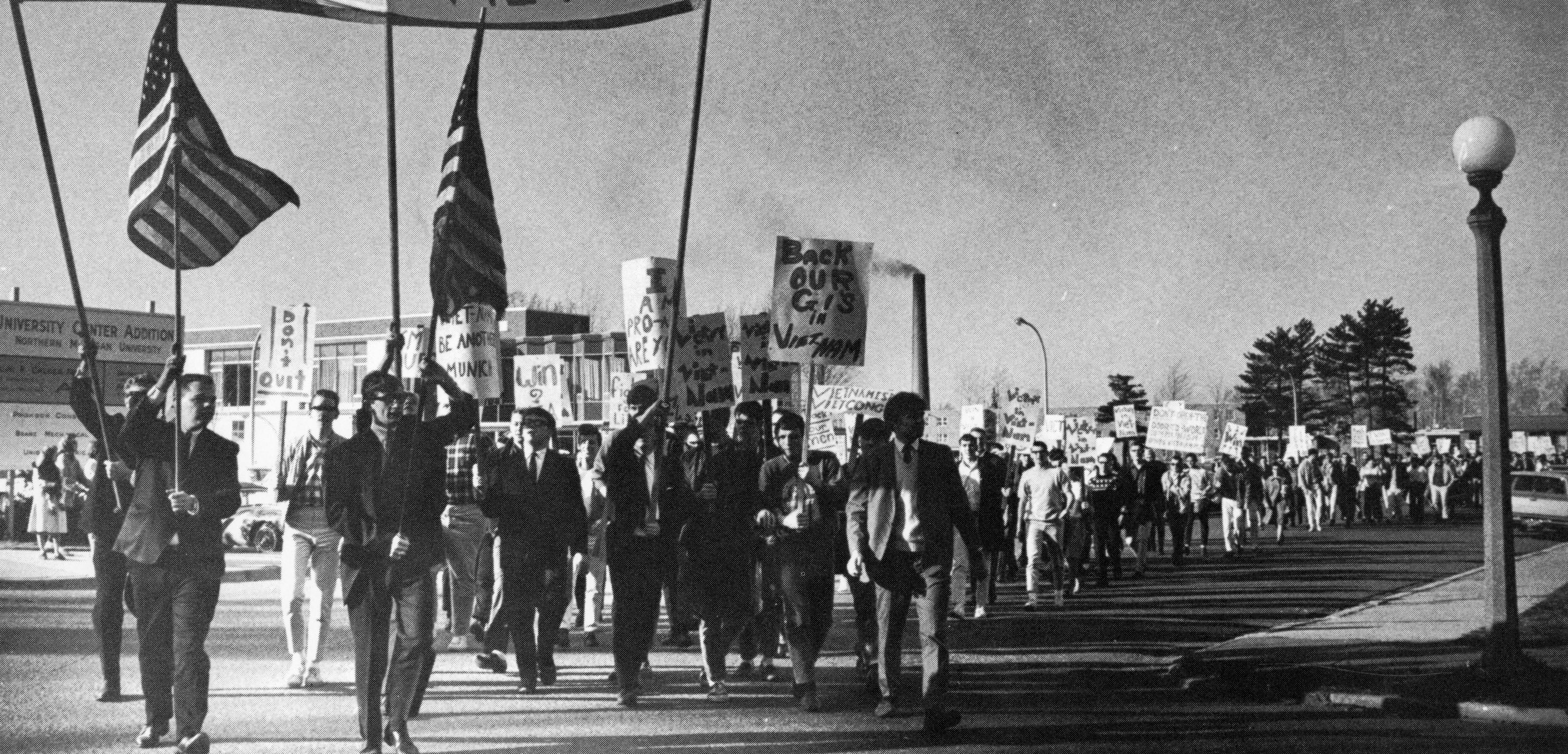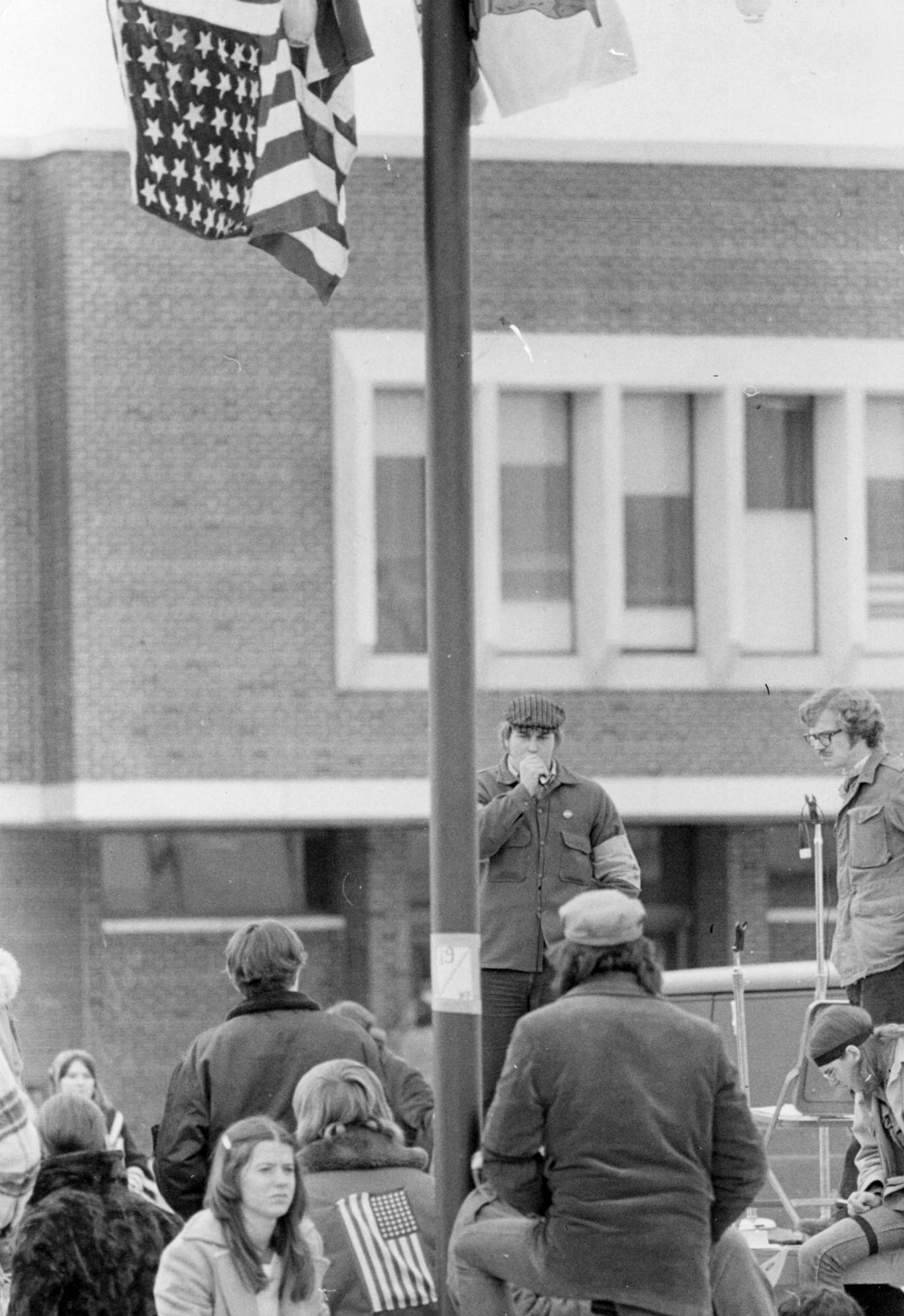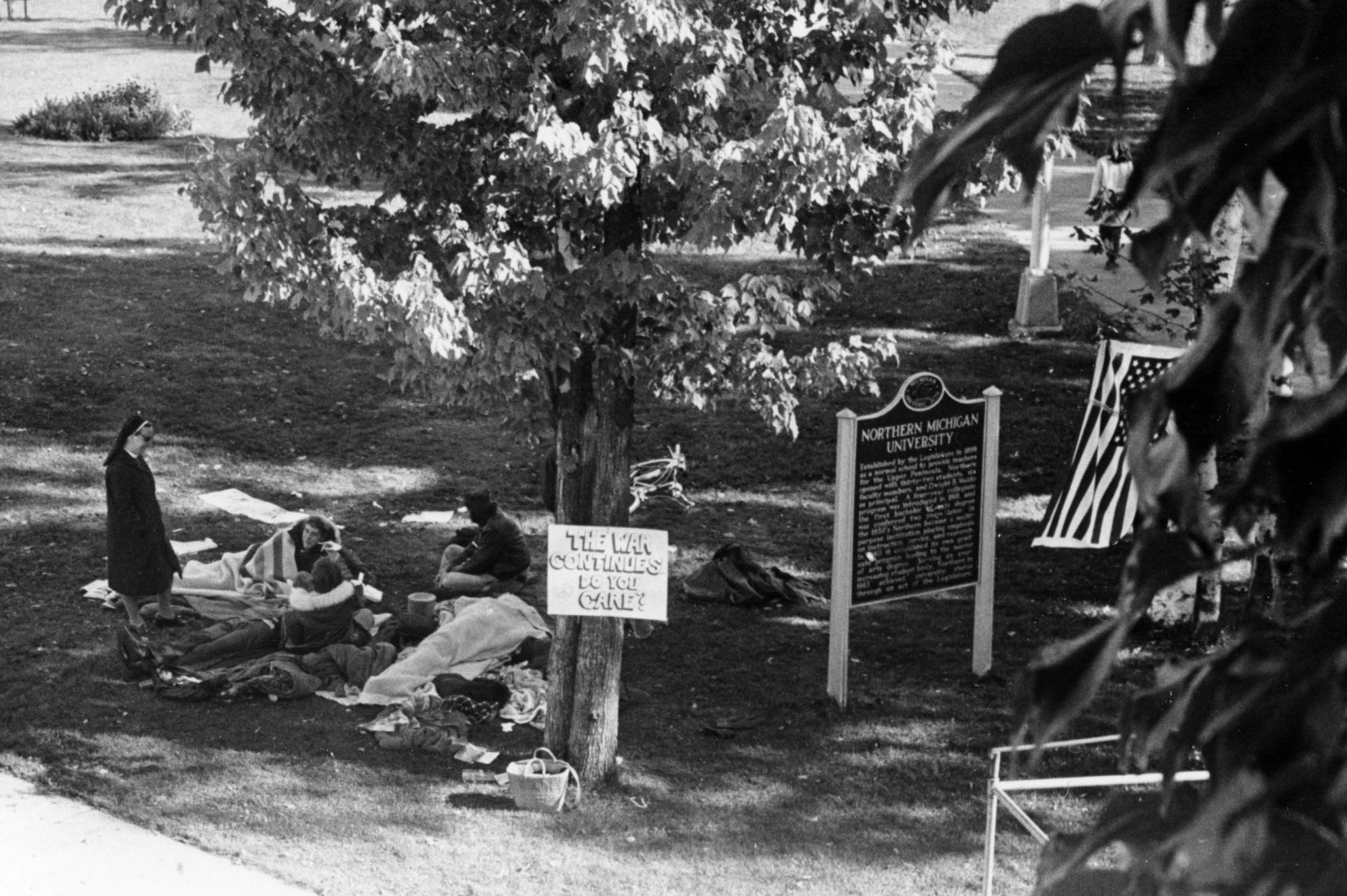Vietnam Protests Continued
1969
Between 1965 and 1969, the newspapers recorded few acts of protest in regards to the Vietnam War. In 1968, the Student Senate did give $50 of student funds to a Marquette group against the Vietnam War to run an ad in the Mining Journal opposing US policy in Vietnam. The student government association also ran a “Peace Booth” in March of 1968 which collected two hundred signatures against the war.
In 1969, however, protests for and against the war heated up on campus. The first protests in early 1969 were largely in response to the newly-established ROTC program. In February, the Mining Journal reported (2-21-69) that:
“Twenty-eight Northern Michigan University students and three faculty members set up pickets Tuesday afternoon [18 February], protesting the establishment of an Army Reserved Officer Training Corps on the NMU campus. The group marched into the University Center at about noon and later stationed themselves in Kaye Hall, where they handed out pamphlets to passers-by. The anti-ROTC group was picketed by a group of pre-ROTC students, some of whom identified themselves as members of the Young Americans for Freedom. The protest centered around the visit of Maj. Victor Pelich, of Michigan Technological University, to Northern’s campus…One of the anti-ROTC students carried a sign reading, “How Many Credits for Killing?” The statement refers to the fact that credit will be given for military science courses. The pre-ROTC group also carried signs, one reading, ‘Do Leftists Alone Have the Right of Free Speech?’ and another: ‘Love It (the country), Or Leave It!’”
Pamphlets handed out by the anti-ROTC protesters said that they felt “that awarding credits for learning to kill efficiently is an outrageous mockery of what this institution supposedly stands for. ROTC has…the influence of creating dehumanized, desensitized automatons.”
Jamrich then issued a statement: “This (ROTC) is a voluntary program. It is essentially the same as saying that we would not force a Christian Scientist to take up the profession of medicine. At the same time, we would not deny the study of medicine to others.”
The protests continued for a few weeks. Although most students did not attend protests supporting the war, many also opposed the anti-war and anti-ROTC protests. Although the actual proportion of such students is unknown, they were a very verbal segment of the student opinion who frequently wrote to the school newspaper:


